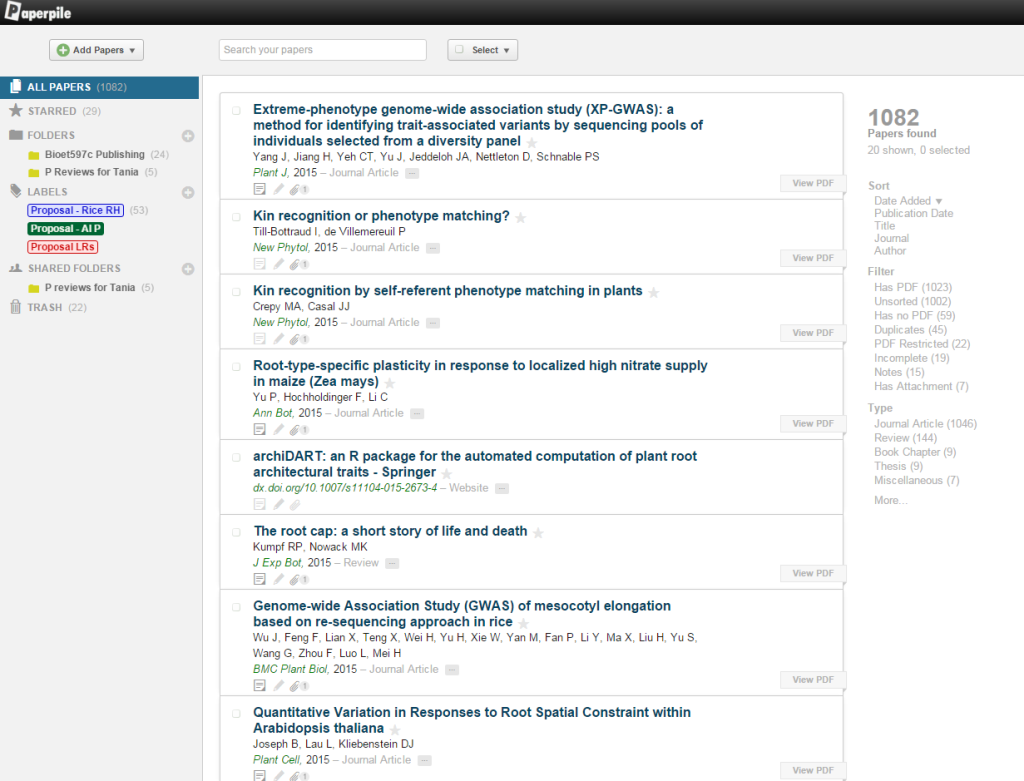I’m starting a new series on the blog, Tuesday Tips, which (as you may have gathered from the name) will consist of a small, actionable tip for grad students that will be posted each Tuesday. Some will be super practical (like this one), whereas others may be slightly more abstract. I hope, more than anything, they’re helpful. If you want to see a bunch of advice about surviving grad school, see Carrie’s previous post on that subject.
A reference manager – use one.
When I started grad school, and when I wrote my undergrad thesis – a requirement at my institution, I had a pile of references, and I entered each citation manually and wrote out each reference at the end. It was horrible, time consuming, and full of mistakes. At the time, there were only a few reference managers on the market, and most of them cost money. That landscape has changed drastically in the past few years, and now you have plenty to choose from. My advice? Pick one, spend some time setting everything up, and never look back. I used Mendeley for a while, but switched to PaperPile when I started to do more of my writing in Google Docs (more on that in the future). Here are a few options and some information about them. The Penn State Library also has some info if you want the opinion of a real librarian.
Paperpile
- In-browser and requires and internet connection
- Works with Google Docs (but not Microsoft Word, as of now)
- Importing from a Google Scholar search is super easy
- $. 2.99 per month
Mendeley
- Very popular among grad students
- Freemium model (most people do well with the free level)
- Easy integration with Microsoft Word
- Read and annotate PDFs within Mendeley
- I used it for a long time, and would recommend it.
Zotero
- Popular, with a good in-browser plug-in
- Free and open source
- Can generate bibliographies via plug-in
EndNote
- The classic.
- $$$$$$$. If your PI doesn’t buy it for you, it’s not worth spending your own money. Most other programs can easily import EndNote libraries, and it’s easy to convert to a new program.
Papers
- I have no experience with this, but know quite a few people who use it. It’s new to Windows, and people who operate outside of the Mac platform don’t seem quick to adopt it.
- It looks nice, and has lots of bells and whistles.
- $$. $49 for a student license.
Flow
- Similar to Paperpile with google doc integration
- Good for collaboration
- Looks nice
- Free for individuals, but also has institutional plans.
There’s lots of discussion about this elsewhere on the internet, so look around for a bit. But, please, please use a reference and citation manager. You have a lot to do and little time, don’t waste it writing citations.

